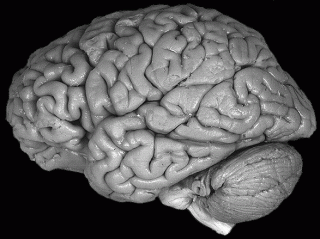Memory
Reading, Writing, and Physical Activity Boost Brainpower
Brain-stimulating pursuits and aerobic activity preserve memory into old age.
Posted July 7, 2013

A new study published on July 3, 2013 found that reading books, writing, and participating in brain-stimulating activities at any age may preserve memory. The study was published online in the medical journal of the American Academy of Neurology. A previous study from 2012—also published by the AAN journal Neurology—found that physical activity prevents brain shrinkage and preserves memory.
Interestingly, the second study didn’t find that mentally and socially stimulating activities had an impact on actual brain size, as seen on MRI scans. What could account for the difference in these findings? Firstly, the two studies were looking for different markers to measure improved brainpower and memory. Also, one study used autopsy to check for physical markers of dementia, while the other study used brain imaging and was only looking for brain shrinkage.
It is possible that despite preventing brain shrinkage that reading, writing and other brain-stimulating activities like playing chess, doing word puzzles, or any form of creativity can all benefit brain health without stimulating neurogenesis. Aerobic exercise stimulates neurogenesis – which is the growth of new neurons – by creating brain-derived neurotrophic factor (BDNF) which bulks up the gray and white matter of the brain.
Dementia is linked to lesions, brain plaques and tangles.
The July 2013 study found that the rate of memory decline was reduced by 32 percent in people with frequent mental activity in late life, compared to people with average mental activity. The rate of decline of those with infrequent activity was 48 percent faster than those with average activity.
"Our study suggests that exercising your brain by taking part in activities such as these across a person's lifetime, from childhood through old age, is important for brain health in old age," said study author Robert S. Wilson, PhD, with Rush University Medical Center in Chicago.
For the study, 294 people were given tests that measured memory and thinking every year for about six years before their deaths at an average age of 89.
Participants also answered a detailed questionnaire about whether they read books, wrote and participated in other mentally stimulating activities during childhood, adolescence, middle age, and at their current age. After death, autopsies were performed looking physical signs of dementia, such as lesions, brain plaques and tangles.
The researchers found that people who participated in mentally stimulating activities both early and late in life had a slower rate of decline in memory compared to those who did not participate in such activities across their lifetime. Mental activity accounted for nearly 15 percent of the difference in decline beyond what is explained by plaques and tangles in the brain. "Based on this, we shouldn't underestimate the effects of everyday activities, such as reading and writing, on our children, ourselves and our parents or grandparents," said Wilson.
Physical activity protects against brain shrinkage.
A study from October 2012, published in the print issue of the medical journal of the American Academy of Neurology found that exercising regularly in old age may better protect against brain shrinkage than engaging in mental or social activities. The findings suggest that brain shrinkage may lead to problems with memory and cognition in old age.
"People in their seventies who participated in more physical exercise, including walking several times a week, had less brain shrinkage and other signs of aging in the brain than those who were less physically active," said study author Alan J. Gow, PhD, from the University of Edinburgh in Scotland. "On the other hand, our study showed no real benefit to participating in mentally and socially stimulating activities on brain size, as seen on MRI scans, over the three-year time frame."
Researchers looked at medical records of 638 people from Scotland born in 1936. The participants were given brain imaging MRI scans at 73 years old.
Participants in the study gave details about their exercise habits. There was a broad range of activity from people who simply walked daily, to those who were only active through daily household chores, to those who kept fit through vigorous aerobic exercise... some even trained and participated in organized athletic events. Participants also reported their participation in social and mentally stimulating activities.
The study found that after three years, people who participated in more physical activity experienced less brain shrinkage than those who exercised minimally. "Our results show that regularly exercising in old age is potentially important to protecting the brain as we age," said Gow.
Conclusion: A Multi-Pronged Approach to Brain Health
What is the takeaway from the potentially conflicting conclusions of these two neuroscientific studies? First and foremost, I am a firm believer that anecdotal evidence and observation of the daily habits linked to longevity and brainpower into old age are just as important as any empirical findings.
It is clear that strong social connectivity, physical activity, mental stimulation, using your imagination, getting enough sleep and eating a healthy diet can all have huge benefits on brain health and memory. Regardless of what scientists discover in the laboratory, each of us can begin to make daily lifestyle choices that will help us maintain a sound mind in a sound body well into our senior years.
For more simple tips on lifestyle changes you can make please check out my Psychology Today blog: 7 Habits for a Healthy Mind in a Healthy Body.




